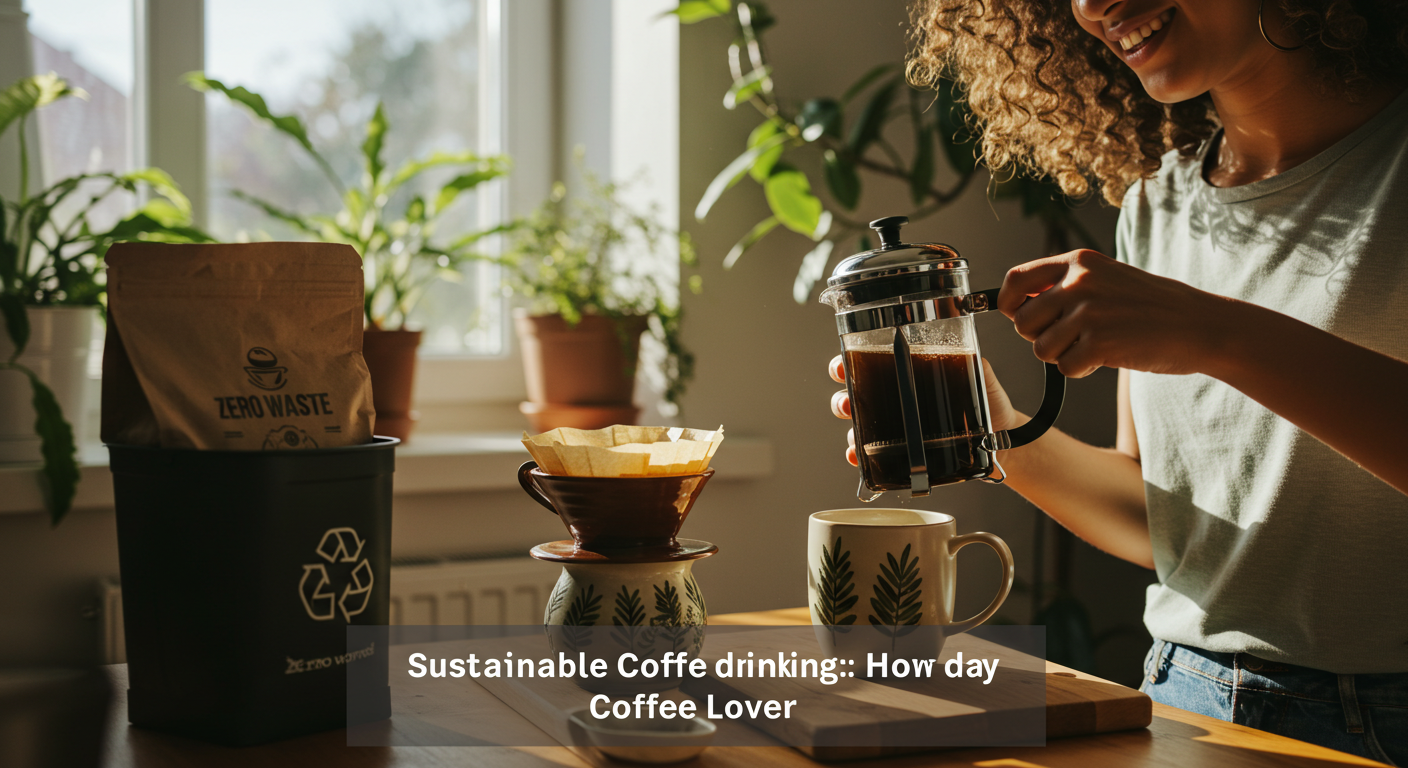Coffee is more than just a morning ritual — it’s a global industry that touches the lives of millions. But behind every cup, there’s an environmental impact. From deforestation to plastic waste, the way we consume coffee can either help or harm the planet.
If you love coffee and want to reduce your environmental footprint, this guide is for you. Let’s explore practical, everyday tips to drink coffee sustainably and support a better future for the environment and the people who grow your beans.
Why Coffee Sustainability Matters
The coffee industry affects:
- Rainforests and biodiversity (due to land clearing for coffee farms)
- Water usage (processing coffee requires a lot of water)
- Carbon emissions (from transportation and production)
- Worker conditions (in many regions, coffee farmers are underpaid)
By making small changes, you can help reduce these impacts — without giving up your daily cup.
1. Choose Ethically Sourced Coffee
Look for certifications that promote ethical practices and sustainable farming:
- Fair Trade Certified: Ensures fair wages and safe working conditions.
- Rainforest Alliance Certified: Protects ecosystems and wildlife.
- USDA Organic: No synthetic pesticides or fertilizers.
- Direct Trade: Focuses on building long-term relationships between farmers and roasters.
These labels help you support brands that invest in people and the planet.
2. Buy Local and in Bulk
When possible, purchase coffee:
- From local roasters to reduce transportation emissions.
- In bulk to avoid excess packaging.
- With compostable or recyclable bags.
Also, bring your own container if the roaster allows — zero waste bonus!
3. Brew at Home Sustainably
You don’t need fancy equipment to be eco-friendly — just a little awareness.
Sustainable Brewing Methods:
- French Press: No filters or pods needed.
- Pour-over with reusable metal filter.
- AeroPress with reusable filter discs.
- Moka Pot: Long-lasting, low-waste brewing.
Avoid single-use coffee pods unless they are fully compostable or recyclable — and even then, check your local recycling guidelines.
4. Say Goodbye to Disposable Cups
Globally, billions of single-use coffee cups end up in landfills every year. Most of them are not recyclable due to their plastic lining.
What You Can Do:
- Bring your own reusable cup to cafés.
- Ask for no lid or straw when drinking on the go.
- Support cafés that offer discounts for BYO cups.
A simple habit with a big environmental payoff.
5. Use Sustainable Milk and Alternatives
Dairy milk contributes to greenhouse gas emissions, but plant-based milks vary in sustainability too.
More Sustainable Milk Options:
- Oat milk: Low water use, low emissions.
- Soy milk: Environmentally balanced.
- Almond milk: Requires a lot of water — not the most eco-friendly.
Also, try reducing milk overall or drinking your coffee black now and then. It’s good for the environment — and you may start appreciating the flavor more deeply.
6. Compost Coffee Grounds
Instead of tossing your used grounds in the trash, compost them!
Coffee grounds are rich in nitrogen, making them perfect for:
- Compost bins
- Garden fertilizer
- Natural pest repellent
- Deodorizer for fridges or shoes
Some people even use them as a skin exfoliant!
7. Avoid Coffee Waste
Every time you brew more than you drink, you’re wasting coffee, energy, and water.
How to Minimize Waste:
- Brew only what you need.
- Store beans in airtight containers away from light and moisture.
- Grind only before brewing to preserve freshness.
- Use leftover brewed coffee in smoothies, baking, or as iced coffee later.
8. Support Sustainable Brands and Farmers
Choose brands that are transparent about:
- Their supply chain
- Environmental initiatives
- Farmer partnerships
Support smaller roasters who build direct relationships with growers, often resulting in better pay for farmers and higher-quality beans for you.
9. Reuse Coffee Packaging Creatively
Instead of throwing away your coffee bags, find ways to reuse or recycle them:
- Turn them into planters or storage pouches.
- Use them as gift wrap.
- Drop them off at a Terracycle collection point, if available.
10. Educate Others
Spread the word! Share what you’ve learned with friends, family, and coworkers. The more people make eco-friendly choices, the bigger the collective impact.
- Encourage coworkers to use mugs instead of disposable cups.
- Talk to your local café about switching to sustainable suppliers or packaging.
- Post your favorite sustainable coffee habits on social media to inspire others.
Coffee Can Be Conscious
Being an eco-friendly coffee lover isn’t about giving up the drink you love — it’s about making more mindful decisions. From how you brew to what you buy, every choice matters.
Start with one change. Then another. And before you know it, your daily coffee ritual will be a force for good — one delicious cup at a time.


